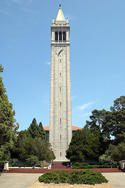North America remains easily the most favored continent both by demography and resources. The political party that harnesses this reality will own the political future.
America cannot afford a prolonged period of slow economic growth. But neither Democrats nor Republicans are prepared to offer a robust growth agenda. Regardless of what happened in the November midterm elections, the party that can outline an economic expansion strategy suitable to this enormous continental nation will own the political future. read more »





















